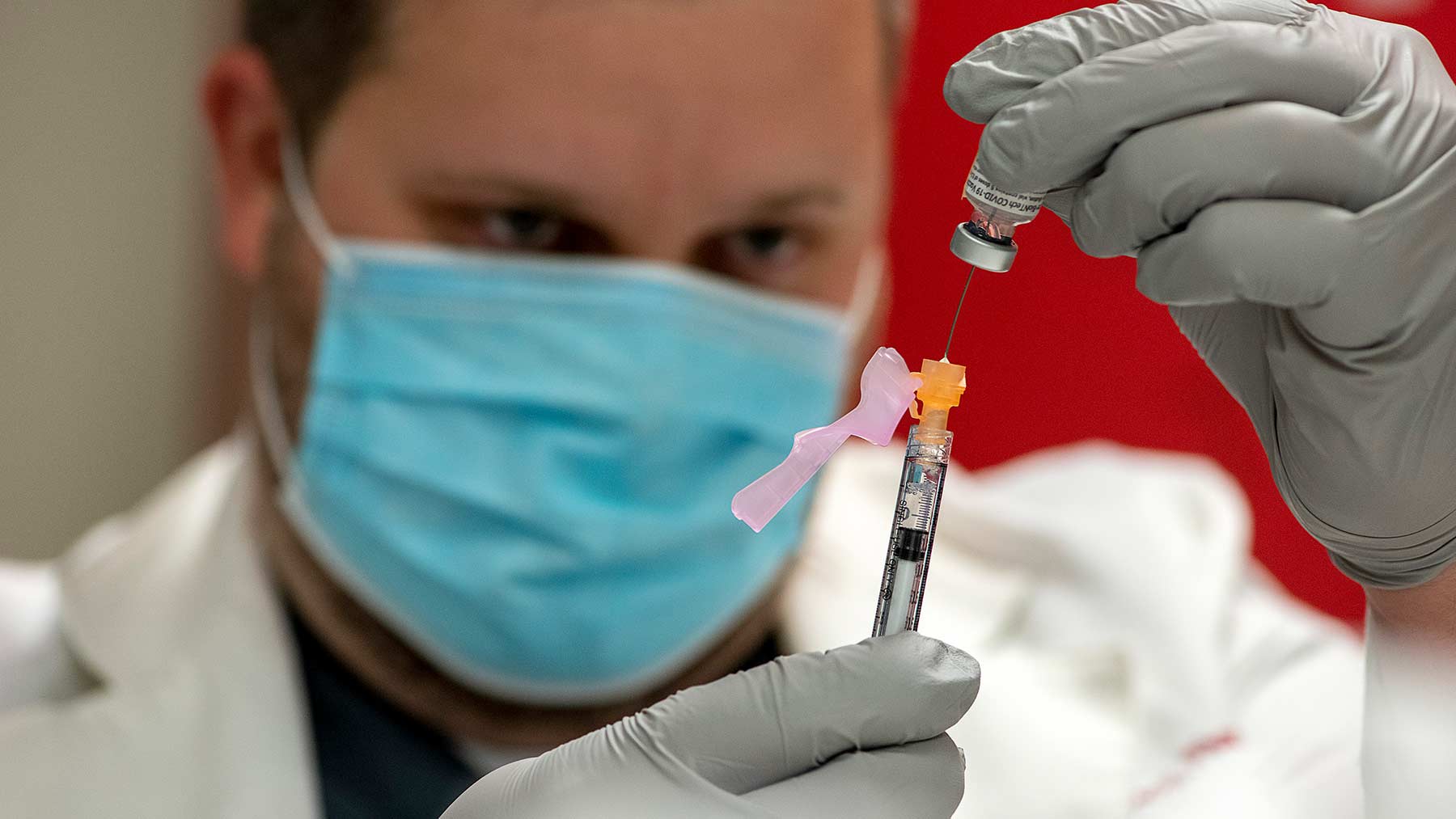Don't skip second COVID-19 vaccine dose

Editor’s note: As what we know about COVID-19 evolves, so could the information in this story. Find our most recent COVID-19 blog posts here, and learn the latest in COVID-19 prevention at the Centers for Disease Control and Prevention.
The best shot at halting the spread of COVID-19 is a vaccine. Some of the vaccines being developed require two doses and others just one dose. Why the difference in the dosage and what happens if you miss taking the second dose? These are questions that medical experts are answering as they work to educate the public about the importance of getting a COVID-19 vaccine.
There’s a reason why Pfizer, Moderna, AstraZeneca and other vaccines require two doses while others only need one shot. Before clinical trials were started in humans, they were done in animals. Those early studies looked at the level of immune response, and for some vaccines, it was most effective after two doses.
Based on that early data, companies developed their vaccines and conducted human clinical trials to determine the safety and efficacy of the vaccines. And for vaccines that require two doses, the trials helped determine the length of time in between shots. For example, it’s 21 days for Pfizer and 28 for both Moderna and AstraZeneca.
It's not unusual for vaccines to require back-to-back doses to be most effective. The first dose primes the immune system while the second dose induces a vigorous immune response and production of antibodies. The bottom line is that you want your immune system to produce a robust enough level of antibodies that if you’re exposed to a virus, your body can effectively fight it. Sometimes that means taking two vaccine doses.
What if you can’t take the second dose in the recommended timeframe?
Fortunately, there’s some wiggle room in this based on clinical studies. You can go three to seven days past when you’re supposed to get the second shot. However, you really should try to get that second dose as close as possible to the recommended schedule.
One thing to keep in mind is that you may have some type of reaction to the shots such as low grade fever, muscle aches and fatigue. That means the body is responding appropriately. The symptoms usually only last a day or two. It’s also possible that the reaction could be stronger after the second shot. Most importantly, these vaccines don’t use the live virus that causes COVID-19. That means getting the vaccine won’t give you COVID-19. But keep in mind that it takes a while for your body to build immunity after vaccination and you can still get COVID-19 just before or after you’re vaccinated.
Do your part to protect yourself and others. Get a vaccine when it’s available to you, and make sure you don’t skip the second dose. Doing so will help save lives and get us closer to the herd immunity needed to stop the spread of COVID-19.
Dr. Carlos Malvestutto is an assistant professor in the division of infectious diseases at The Ohio State University Wexner Medical Center.




